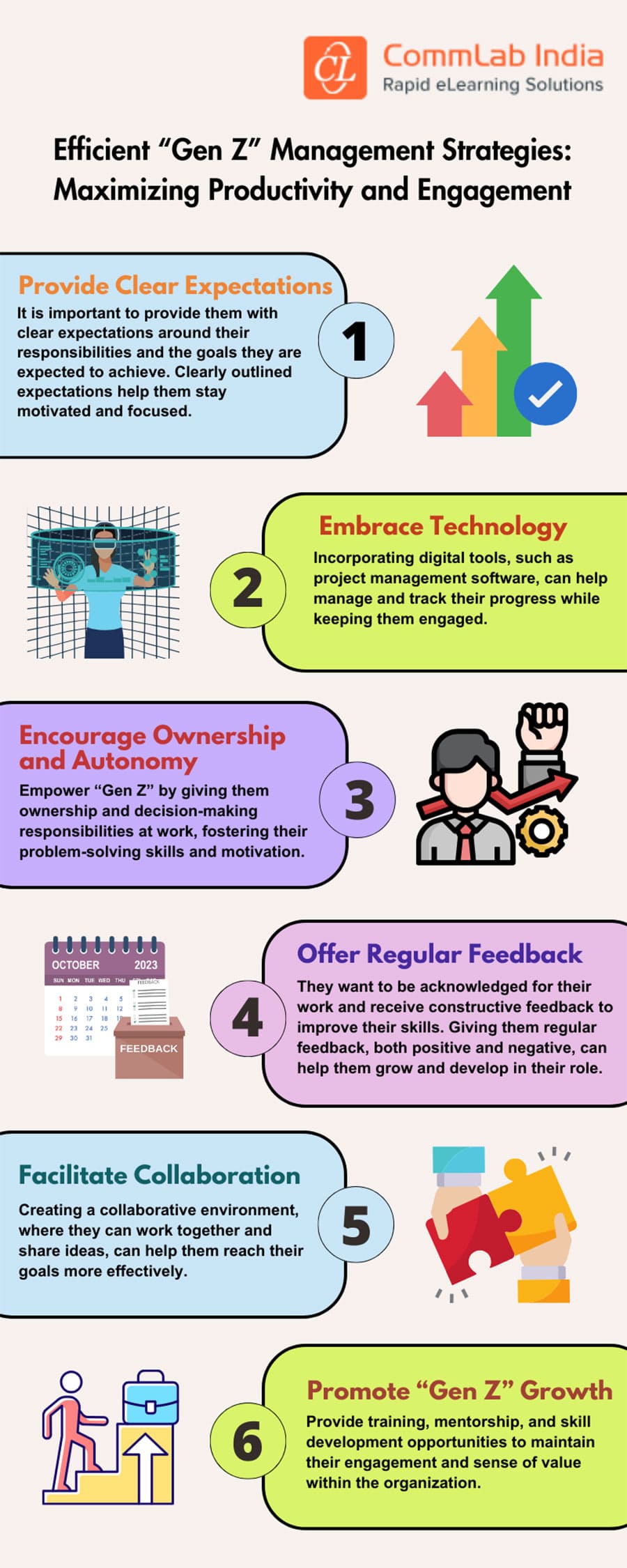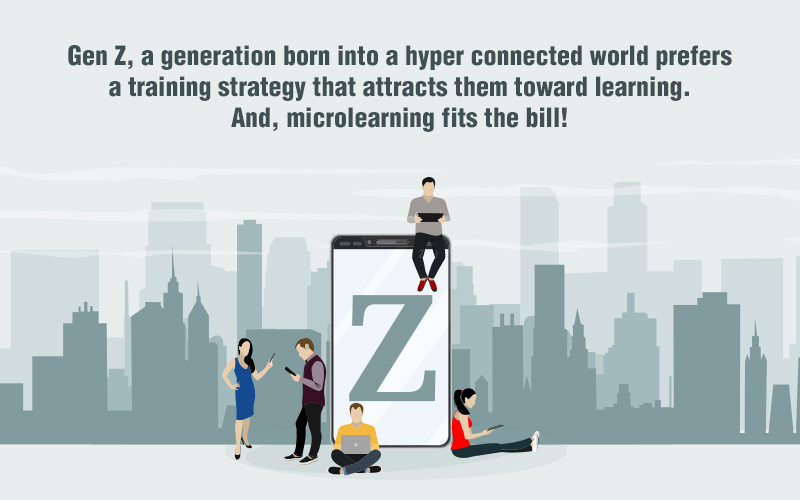Efficient Gen Z Management Strategies to Maximize Productivity and Engagement [Infographic]
![Efficient Gen Z Management Strategies to Maximize Productivity and Engagement [Infographic] Efficient Gen Z Management Strategies to Maximize Productivity and Engagement [Infographic]](https://blog.commlabindia.com/hubfs/blogs/gen-z-management-strategies-infographic.jpg)
As we move forward in the 21st century, the newest entrants to the professional world are the members of Generation Z, commonly known as Gen Z. They are digital natives who were born and have grown up in a tech-driven world that is vastly different from their predecessors. They don’t really need to wait to get to college or get a job in order to have a mobile phone or a laptop. For Gen Z, these things are basic!
Their lifestyle, thought process, eating habits, work ethic, and personal values are way different from what the previous generations have held onto. With that said, having the members of Gen Z as part of the workforce brings both unique challenges and opportunities for employers to tread the path of modernity and innovation.
In this blog, we’ll understand the characteristics of Gen Z members and then dig deep into efficient management strategies for Gen Z to maximize productivity and engagement.
Without further delay, let’s roll!
3 Standout Characteristics of Gen Z
They are Digital Natives
Gen Z is the first generation to grow up entirely in the digital age. They've only known a world with smartphones, social media, and instant access to information. This has significantly shaped their communication styles, problem-solving approaches, and learning and management expectations when it comes to the workplace. They are quick to adapt to technological changes and new tools, prefer digital learning, and expect seamless integration of technology into their work processes.
→ Download Now: How L&D And Business Can Align to Conquer The Future Of Work
Committed to Diversity and Inclusion
Gen Z members strongly believe in and value diversity and inclusion. According to a survey by Monster, 83% of Gen Z candidates consider an organization’s commitment to diversity and inclusion. They are diligent supporters of equality, social justice, and true leadership. Moreover, they have a high degree of awareness and understanding of global issues. As a result, they often strive to do their bit to make a difference and help the world become a better place. So they seek workplaces that are not only diverse but also actively promote inclusivity and social responsibility.
Have a High Entrepreneurial Spirit
Gen Z is driven by a desire to make a meaningful impact on the world. Whether it’s about making money, doing something to prevent climate change, saving animals, mental health, or simply being kind one step at a time, Gen Z aspires to make it big. Many of them even plan to start their own businesses or take up side hustles where they often see themselves as their own leader. This characteristic indicates that Gen Z employees are often more independent, self-motivated, and innovative. They are constantly looking for and value opportunities for professional development and advancement. They're willing to work hard as well as smart to achieve their goals. And if the role doesn’t seem the right fit, they don’t hesitate to change the job. Now that we have a better understanding of the peculiar traits of Gen Z, let’s take a look at management strategies for attending to the Gen Z workforce to maximize productivity and engagement.
Efficient Gen Z Management Strategies to Maximize Productivity and Engagement
Parting Thoughts!
Managing Gen Z in the workplace requires organizations to rethink their working and training methods. This generation is definitely different from the previous ones and understanding and accommodating to their needs and preferences is an effective way to maximize productivity and foster engagement. Get ready to harness the potential of Gen Z and ride the wave of change! Learn more about how L&D and business can align for unparalleled success and positive outcomes in the eBook below. Check now!






![Why Microlearning Is the Ideal Training Format for Gen Z Workforce [Infographic]](https://blog.commlabindia.com/hubfs/blogs/microlearning-ideal-training-format-gen-z-infographic.jpg)
